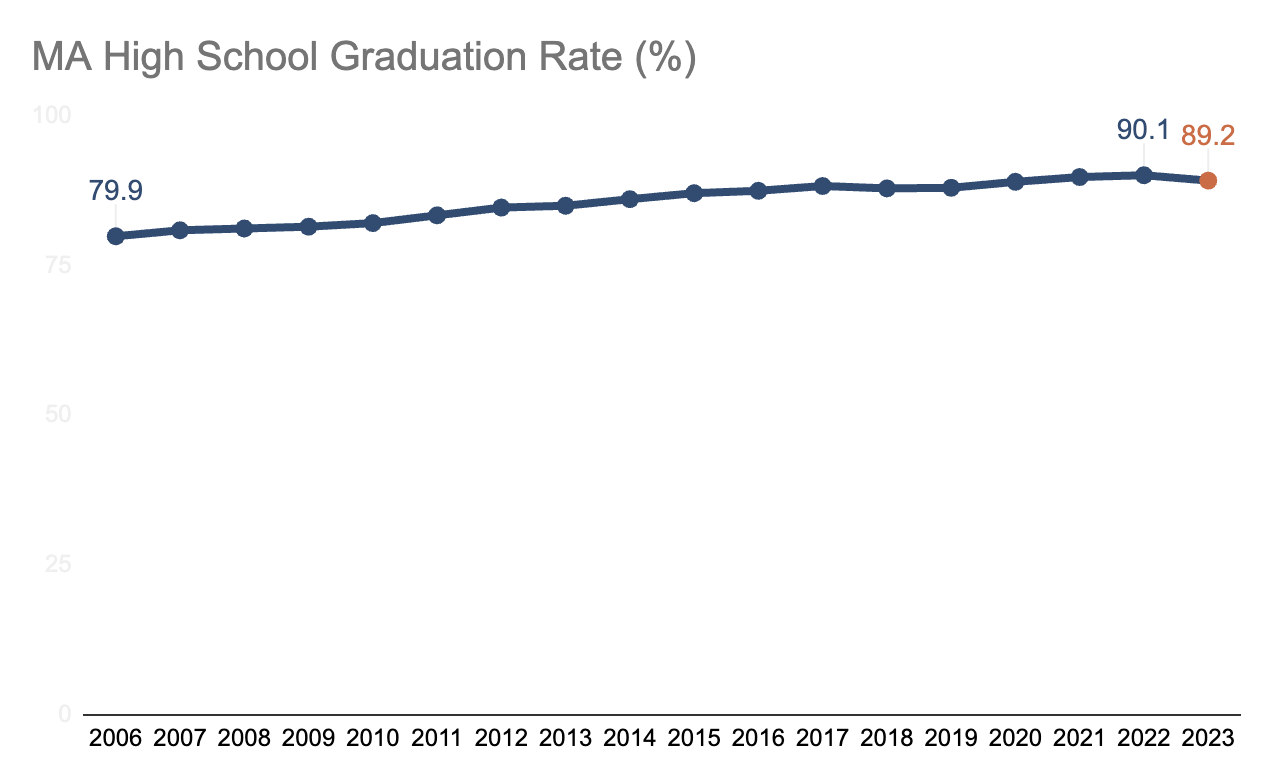FYI from BSF, 4.26.24
A portion of Wednesday’s Boston School Committee (materials here) focused on the district’s annual demand report, a summary of how families chose schools in the most recent assignment process.
But some of the most striking family demand data came from somewhere else.
As is custom since the exam schools admissions process was overhauled in 2021 and tweaked since, there was updated data on this year’s round of exam school applicants and admission. There will likely be more details coming (by school, area of the city, etc.), but there is one clear headline.
Demand has declined for Boston’s exam schools. Applications, for 7th and 9th grade, have decreased by ~50%.
While the number of offered seats has remained fairly consistent, the number of students not admitted has significantly declined.
In 2020, there were nearly two non-admitted applicants for each invitation. Now, that ratio has completely inverted.
What explains this change?
It is not because there are fewer kids. There are fewer 7th and 9th graders enrolled in BPS than in 2020 (by ~11%), but not to the degree to explain the decline (also accounting for the fact that combined charter school, METCO, and private school enrollment did not decline).
It is not because of the composition of the applicant pool. The proportion of Boston Public Schools applicants to non-Boston Public Schools applicants has virtually unchanged. Non-BPS applicants were 24.7% of the pool in 2020; in 2023, 23.9%.
It’s just that there are a lot less applicants.
Which begs the question: if these three schools have received such significant scrutiny, time, and resources, if these three schools received national praise and rankings just this week, if these three schools are so important that families are now pleading to the Supreme Court, why are so many fewer families trying to send their children to them?
notes in the margin
New school capital projects in Boston will be announced next month.
More to come, but data released last night indicates that the high school graduation rate in Massachusetts declined for only the second time since that data was first publicly reported in 2006.
More Massachusetts children are enrolled in publicly supported preK programs, while keeping in mind quality has to follow.
Three interesting public opinion tidbits this week. Nationally, confidence in PK-12 schools appears to have waned.
Locally, a slim majority of MA voters support teacher strikes and would rather increase taxes than cut school spending.
With Senate President Spilka now weighing in, Beacon Hill’s “Big Three” oppose removing the MCAS high school graduation requirement. Spilka shared this and her education priorities for this year’s budget.
Encampments at colleges have dominated local and national attention.
Other matters
Congratulations to Excel Academy, one of BSF’s first grantees in 2015. Nearly nine years after opening for its first high school class, Excel has added +1,000 students and just posted the fifth highest graduation rate in the Commonwealth (99.4%).








